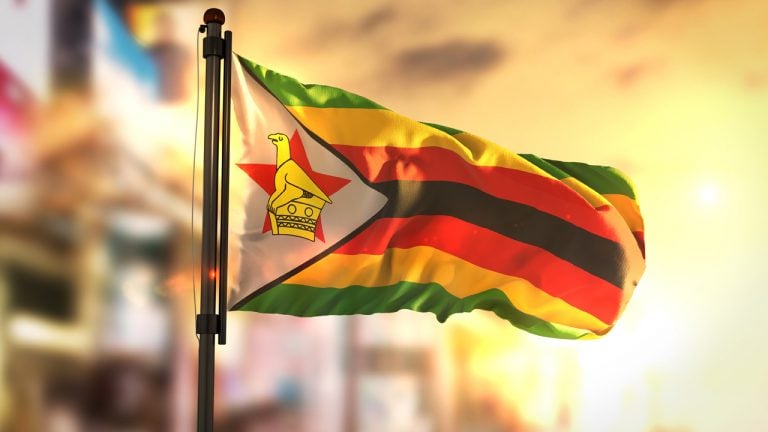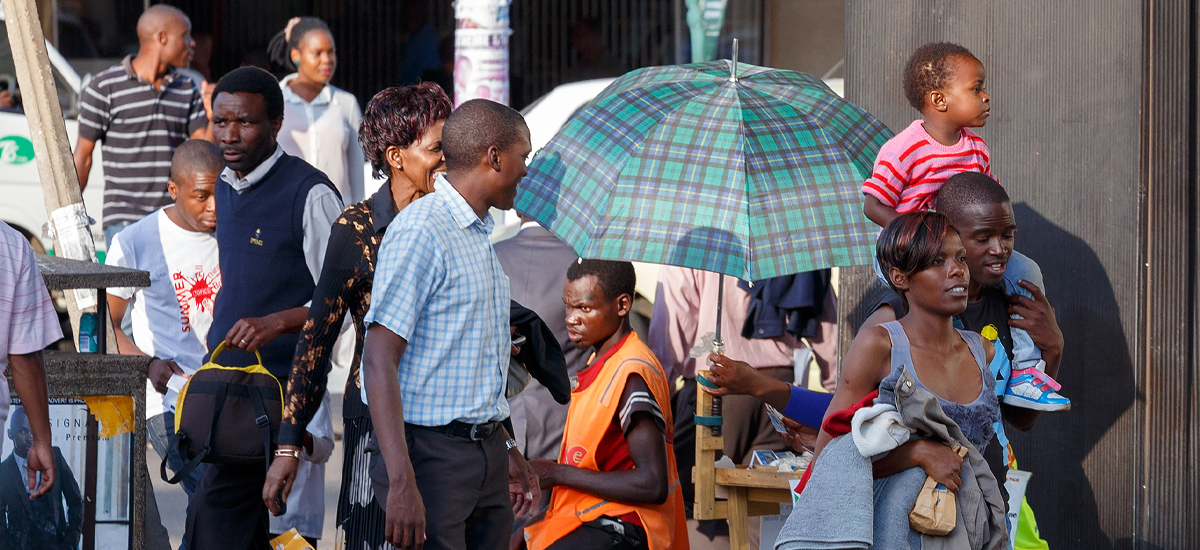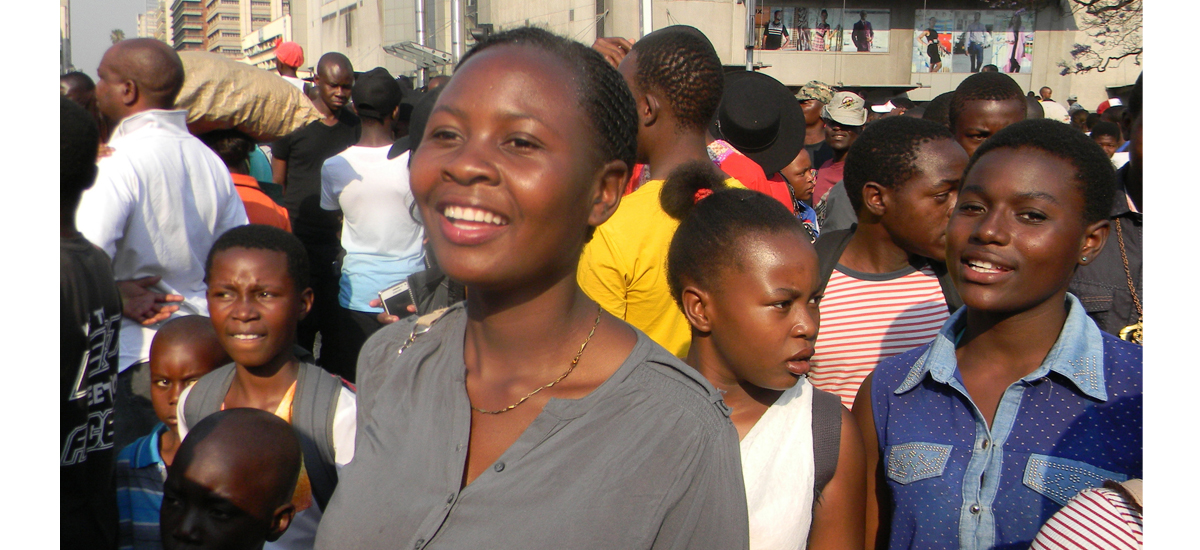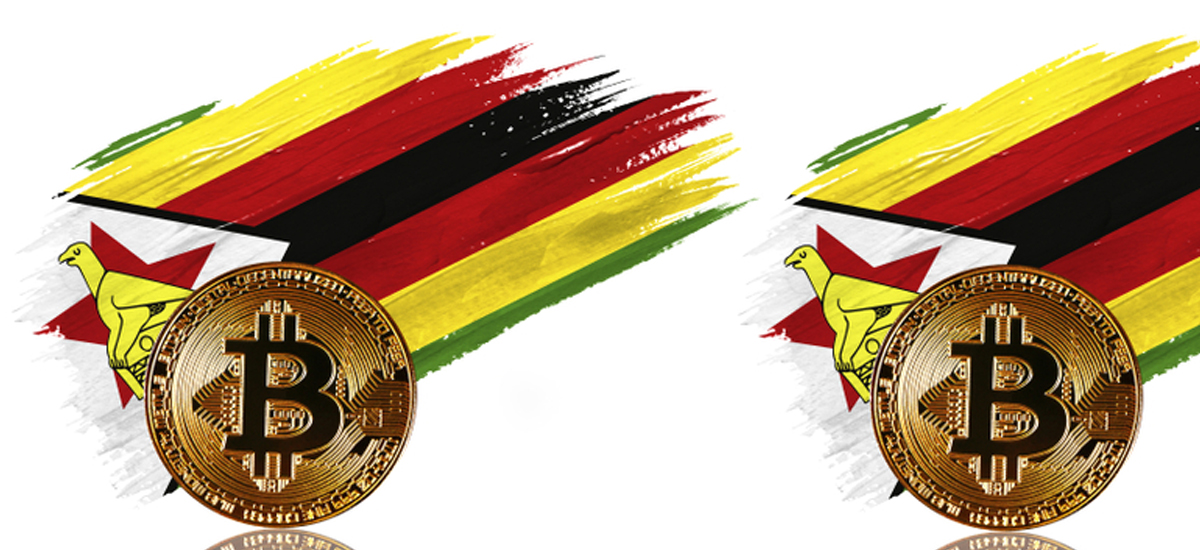Zimbabwe’s Battle To Control Currency Inadvertently Boosts Bitcoin Profile
Publikováno: 12.7.2020
 Zimbabwe’s deteriorating economic situation is forcing authorities to sign off on some desperate and controversial decisions. Some of such decisions include the abrupt suspension mobile money as well as the recent designation of Zimswitch as a national payment switch. Reserve Bank of Zimbabwe Suspends Mobile Money Service Owned by banks, Zimswitch is the current payments […]
Zimbabwe’s deteriorating economic situation is forcing authorities to sign off on some desperate and controversial decisions. Some of such decisions include the abrupt suspension mobile money as well as the recent designation of Zimswitch as a national payment switch. Reserve Bank of Zimbabwe Suspends Mobile Money Service Owned by banks, Zimswitch is the current payments […]
The post Zimbabwe’s Battle To Control Currency Inadvertently Boosts Bitcoin Profile appeared first on Bitcoin News.

Zimbabwe’s deteriorating economic situation is forcing authorities to sign off on some desperate and controversial decisions. Some of such decisions include the abrupt suspension mobile money as well as the recent designation of Zimswitch as a national payment switch.
Reserve Bank of Zimbabwe Suspends Mobile Money Service
Owned by banks, Zimswitch is the current payments switch to the same financial institutions. This designation has been made to, ostensibly, enable interoperability between financial services providers.
In a notice to the public Thursday, the Reserve Bank of Zimbabwe (RBZ) says all financial services providers including mobile money operators (MMO) must connect to this national payment switch.
The country’s largest MMO, Ecocash appears to be the target of this move by RBZ. Over the years, Ecocash has routinely been accused of frustrating efforts to enable interoperability between MMOs among a slew of charges.

Fighting Mobile Money Monopoly
Ecocash’s critics say the MMO does this to preserve its monopoly, a status it gained after investing heavily in building its infrastructure. Ecocash inevitably became the most dominant MMO, a fact confirmed by findings of a survey conducted by the local telecoms regulator. According to the findings, Ecocash accounts for more than 94% of all mobile money payments.
Furthermore, a study by the RBZ itself, reveals that mobile money dominates national retail payments, accounting for 80% of all such payments.
Inevitably, Ecocash’s dominant position has long been a source of tension with regulators and now government. Yet despite the threats and directives, Ecocash has steadfastly refused to be cowed into relinquishing its dominant position.
However, the country’s accelerated economic decline, as well as the hyperinflation environment, is reportedly creating tension and paranoia in corridors of power. Some commentators point the surprising decision to suspend mobile money transactions as an example of this paranoia.

As expected, Ecocash dared the government by refusing to abide by the suspension order. Ecocash argued that the government official making announcement erred as he did not consult with the RBZ before going public. The shortlived stand-off ended when the RBZ finally issued a statement wherein it regurgitates the government position.
Ecocash: Zimbabwe’s Economic Bogeyman
Now both government and RBZ sing from the same hymn book when it comes Ecocash. They accuse Ecocash of fueling activities on the “illegal” foreign currency black market. Ecocash is also accused of running a Ponzi scheme. Somehow, Ecocash has become Zimbabwe economy’s bogeyman.
The designation of Zimswitch as the payments switch for all financial services providers appears to show a determination by authorities to check Ecocash’s influence. By gaining indirect control of the popular MMO, authorities hope they will also be able to rein on influential foreign currency dealers.
Ultimately, killing the black market for foreign currency appears to be the objective. However, it is doubtful if this objective can be realised through the use of such heavy-handed tactics.
Ecocash may be out of legal options to fight back this time but that may not be the case for shadowy foreign currency dealers. Dealers and now ordinary citizens seem to have found another option that does not include Ecocash. This option is bitcoin.
Faced with stringent foreign exchange regulations some Zimbabweans are switching to bitcoin when making payments across borders. Bitcoin is faster and not subject to normal regulations.
The Growing Use of Bitcoin
Still, others now prefer storing their funds in the form of bitcoin because they have absolute control. The government cannot control or suspend cryptocurrency as it has done with Ecocash. Bitcoin is also immune to local inflation which, according to John Hopkins Economics professor, Steve Hanke, now exceeds 1000% per annum.
Some foreign nationals are now also using bitcoin when remitting funds back to their home countries. Finally, joining this crypto community is the much-maligned foreign currency traders. Traders are tapping into the growing demand for bitcoin.
In 2018, perhaps sensing a threat posed by cryptocurrencies, the RBZ directed banks to end support for all cryptocurrency-related businesses. This directive resulted in the shut down of Golix, a cryptocurrency exchange. Yet, in spite of all this, bitcoin trading and its use as means of payment continues to grow.

Traders and buyers of bitcoin now use social media messaging apps and other channels to initiate transactions.
Unfortunately for the government and RBZ, they are not positioned to determine the exact level of bitcoin trading or penetration. This is partly due to the directive against the only formal institutions that can generate such data. The order that outlaws cryptocurrency exchanges remain in force. Furthermore, the peer to peer nature and anonymity of transactions means authorities will never know the true volumes of transactions.
Social Media Messaging Apps as Cryptocurrency Exchange Platforms
Nevertheless, there is still a way one can gain some insights into this trade. A simple perusal of posts or adverts found in many cryptos related social media chat groups can provide clues.
In some of the posts seen by this writer, sellers offer amounts often not exceeding $100. With the restrictions and suspension of certain mobile money services, trades are now mainly settled in hard currency.
From the adverts, it customary for sellers of bitcoin to charge a premium ranging from 5% to 10%, in addition to the agreed price. In the meantime, many buyers are looking for bitcoin that exceeds $100.
Looking at a few media channels one trader stands out. The trader, who we shall not name, normally posts advertisements every morning. In the advertisements, she set terms and conditions, usually the minimum bitcoin (BTC) they are selling and their premium rate.
Speaking to this writer, the trader says business has been booming of late. She claims to now sell bitcoin worth $50,000 each day. She attributes this growing uncertainty and control of the economy by the government.
Zimbabwe’s growing bitcoin trading activities suggest authorities may be losing the battle to win confidence and trust. It seems as conditions get worse more will seek to understand this newly found escape route.
Do you think more Zimbabweans will switch to bitcoin as the economic situation gets worse? Let us know in the comments section below
The post Zimbabwe’s Battle To Control Currency Inadvertently Boosts Bitcoin Profile appeared first on Bitcoin News.